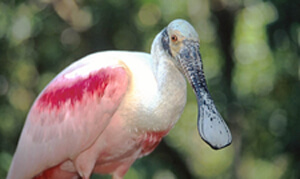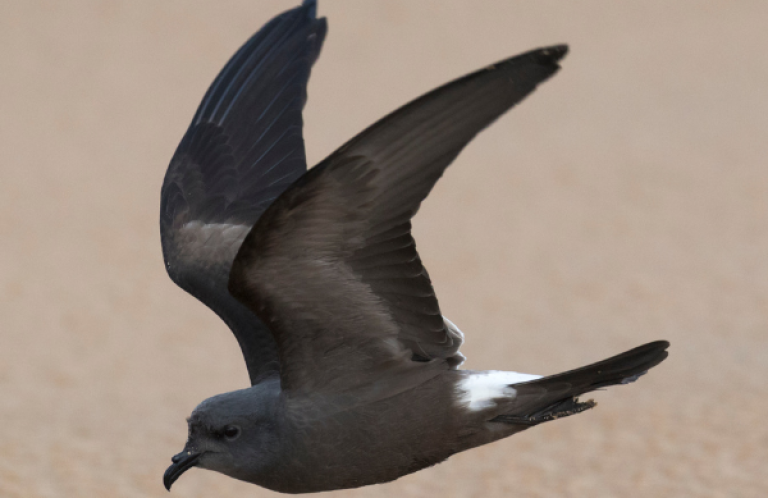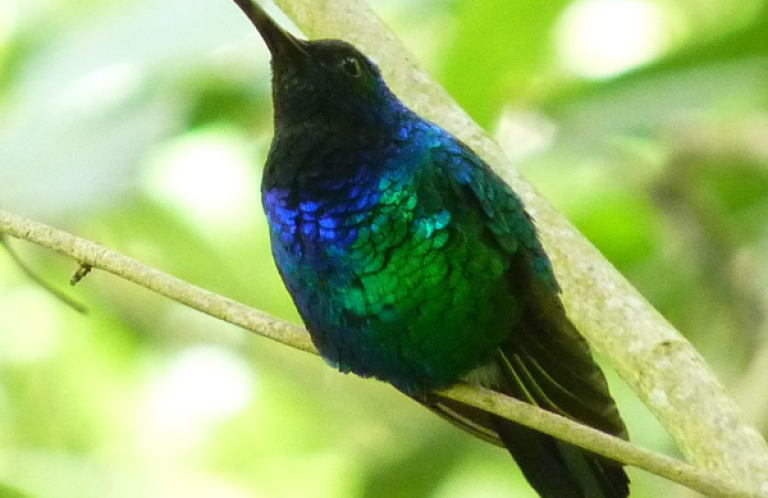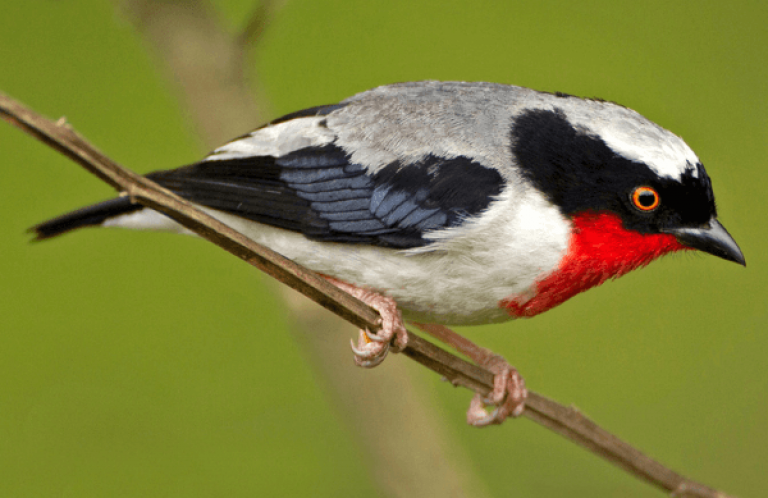National Bird Conservation Group Opposes Texas Coal Plant
For Immediate Release Contact: , 202-234-7181 ext.210
 |
Roseate Spoonbill. Photo: Clipart.com |
(Washington, D.C., May 21, 2010) American Bird Conservancy (ABC), the nation's leading bird conservation organization, has asked the U.S. Army Corps of Engineers (Corps) to deny the permit for the 1,320-megawatt White Stallion coal plant. The plant is proposed for construction on a 1,200-acre site on the Colorado River near Bay City in Matagorda County, Texas.
In a two-page letter to the Corps and the Environmental Protection Agency, ABC's Vice President of Conservation Advocacy, Darin Schroeder, stated “…operation of the coal plant will have an impact on one of the nation's most significant areas of native coastal habitats for birds; where early winter species avian diversity is among the highest in the United States, an area that supports a large breeding population of water birds, and where massive numbers of migrating birds pass through during the spring and fall.”
The letter further stated that Mad Island Marsh near the plant has ranked first in the nation in number of species recorded during annual Christmas Bird Counts, and has been designated a Globally Important Bird Area by ABC. Wintering birds include more than 8,000 herons, about 56,000 waterfowl, more than 10,000 shorebirds, and significant numbers of Sandhill Cranes, Reddish Egrets, Sprague's Pipits, and Le Conte's and Seaside Sparrows. Among the birds found seasonally are Roseate Spoonbills, Wood Storks, Mottled Ducks, Yellow and Black Rails, American Avocets, and Dickcissels.
The Section 404 permit required by the plant in order to operate concerns the discharge of dredged or fill material, and determines whether that action is environmentally acceptable. The approval process weighs the favorable impacts of a proposed activity against the detrimental impacts.
According to ABC, White Stallion will increase emissions of nitrogen oxide, mercury, and lead, all of which have negative impacts on birds and humans. Lead in particular has multiple effects on neurological, renal, reproductive, pancreatic, and muscular functions, among others. Fetuses and children under the age of seven years are particularly sensitive to even low levels of lead exposure, and often suffer neurological damage such that clinicians now assert that there is no safe level of lead in the body tissues of these most vulnerable subjects.
White Stallion would also pull 36,000 acre-feet of water from the Colorado River every year, reducing needed availability to shorebirds. In addition, increased activity from the barges that would deliver coal every day would contaminate water with toxic runoff and erode embankments, likely impacting nesting success. Lastly, the coal ash waste stored on site could result in an environmental catastrophe. The proposed site is situated in a 100-year flood plain, and in the event of extreme weather, toxic waste could wash into public waterways, degrading another resource crucial for birds, other wildlife, and humans.
ABC offers that birds are not only beautiful and interesting creatures eagerly welcomed by millions of Americans into their backyard every year; they are also an important natural resource shared among countries and their people. What may not be well known is that birdwatching is also the fastest growing outdoor activity in America, with more than 30% of adults actively participating – far exceeding our designated national pastime, baseball. In addition, according to the U.S. Fish and Wildlife Service, birdwatching contributes nearly $85 billion to our economy every year, or about 1% of GDP – $32 billion in retail sales, and $13 billion in state and federal income taxes. Texas is the number one state in the nation for revenue generated by birdwatching.
Schroeder says that “The proposed development will have far-reaching negative effects on one of our region's most valuable environmental assets. Therefore, American Bird Conservancy respectfully requests you oppose the proposed White Stallion coal plant.”
#30#
American Bird Conservancy conserves native birds and their habitats throughout the Americas by safeguarding the rarest species, conserving and restoring habitats, and reducing threats while building capacity of the bird conservation movement. ABC is a 501(c)(3) not-for-profit membership organization that is consistently awarded a top, four-star rating by the independent group, Charity Navigator.


















































